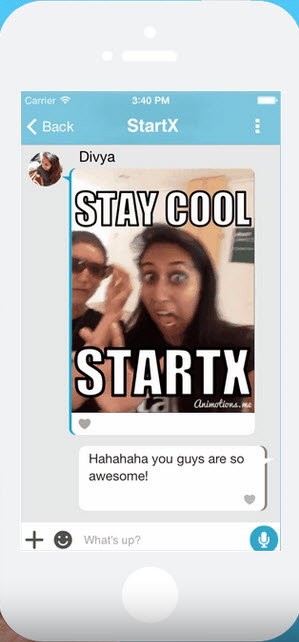Stanford lab launches new privacy-based social network
March 14, 2014
With rising public interest in what developers refer to as the “privacy economy,” researchers from the MobiSocial Lab at the Stanford School of Engineering have announced at SXSW a new type of social network, called Omlet that allows users to control their own personal data.
Omlet “shields users from the monetization of their personal lives by giving them total and unquestioned control of their personal data,” according to Monica Lam, a professor of computer science at Stanford and founder of the MobiSocial lab and a startup by the same name, MobiSocial.
Omlet’s creators are heralding the release as the first venture of what they call the “privacy economy.”
“The privacy economy means an economy built on top of the principle of protecting users’ privacy. We actually don’t charge consumers any money, nor do we monetize their data. We make our money through, for example, providing value-added services to partners, such as encouraging users to use certain vendors by default, or selling virtual goods like stickers, etc.,” said Lam.
“With news of NSA eavesdropping and the ever-inscrutable, ever-evolving privacy policies of proprietary social networks, the public is increasingly and understandably concerned about where, when and how their personal information is being used,” Lam added.
MobiSocial was founded by Lam and three of her former Stanford PhD students, Ben Dodson, T. J. Purtell and Ian Vo. The lab was an offshoot of a $10 million grant by the National Science Foundation in 2008, specifically aimed at creating a Programmable Open Mobile Internet (POMI).
“At POMI, our group was concerned about privacy from the very start,” Lam said. “We were looking to drive a new type of messaging and app platform that is free of monetization of data. That’s what the privacy economy is all about.”
“Omlet is the first platform that puts control of that data back in the users’ hands in an app environment that is as easy to use as any of today’s most popular social channels,” added Dodson.
Decentralized, private
To illustrate Omlet’s ease of use, Lam described how a group of wedding guests might join a private, on-site chat at which they share a jointly created photo album in real time on their smartphones. Later, they’d be able to easily recall those photos by simply entering data about the occasion — the name of the bride or groom, for instance.
The data exists as a collection of private files stored on each network member’s personal cloud storage service of choice and is fully indexed for easy recall.
Students at Stanford, for instance, get a personal Box.net account with 25 gigabytes of storage space when they enroll. Using Omlet, all their social interactions, shared photos, likes and dislikes can be directed to this private repository, far from prying eyes.
“Omlet users are not even tied into any one cloud storage service; they could just as easily choose to direct their files to Dropbox, Google Drive, Baidu Cloud or other cloud system of their choice,” said Purtell.
As an open-source applicationWith open and free APIs, Omlet is customizable by outside developers. Lam likens Omlet to a browser. How people choose to modify the browser environmentcreate web pages is up to the programmers.
“While respecting privacy, Omlet Chat (for iOS and Android) is also fun, packed with Do-It-Yourself features so smartphone users can create their own style of communication,” MobiSocial CEO Monica Lam explained to KurzweilAI in an email interview.
“It is free and completely personalized. In addition, Omlet has three unique capabilities that make it ideal for collaboration and sharing:
- It is simple to share photos and chat on the fly with large groups. For example, attendees at any event can just join a chat broadcast on location to enjoy a joint album — consisting of photos contributed by anyone in the group chat — right on their phones.
- Omlet’s “distributed semantic file system” organizes the shared information so it can be viewed and accessed easily. For example, users can easily look up a photo shared in a chat by just remembering a name.
- Omlet is an open innovation platform upon which users can easily build and spread their self-created social apps. Examples: An engineer single-handedly improved his team’s productivity by hooking up the Github commit log to their team chat — his GitChat app is available for free. And a high school student made Snap, an app that makes shared photos disappear in seconds on top of Omlet in just two days.”
Lam said Omlet is tightly integrated into ASUS’s new line of ZenFones (launching shortly), “the world’s first natively social phones,” and Stanford University has included Omlet in iStanford, its official mobile app, to facilitate communication on campus.
“While other proprietary social networks force users to give up their data, Omlet’s core technology is a first-of-its-kind chatting and distributed social network platform that lets users own their data in their designated cloud repositories,” she added. “MobiSocial promises to never monetize or sell users’ data, and instead encourages them to store their own data to protect your privacy.”
Omlet is available free from iTunes App Store or Google Play.
UPDATE 3/14/2014 2:28 EDT: As an open-source applicationWith open and free APIs, Omlet is customizable by outside developers. Lam likens Omlet to a browser. How people choose to modify the browser environmentcreate web pages is up to the programmers.


